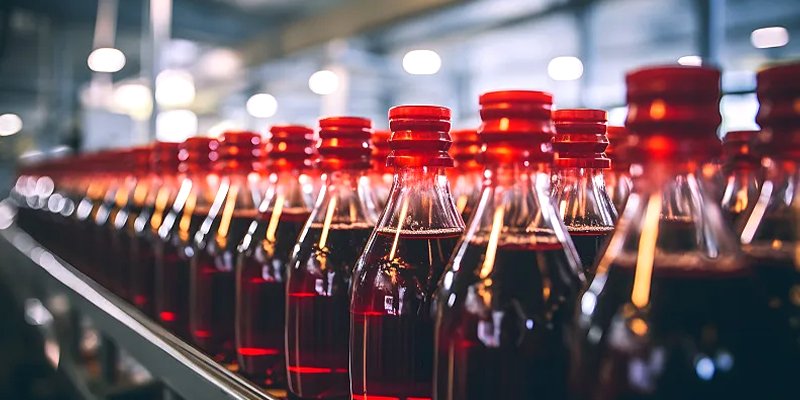In a global manufacturing landscape where time, efficiency, and automation are critical success factors, the role of the industrial bottle filling machine has never been more essential. For companies operating in beverage, food, pharmaceutical, and chemical industries, bottling is more than just the final packaging step—it’s a gateway to product integrity, shelf life, and consumer satisfaction.
This article explores the top five industrial bottle filling machines in 2025 that have set the benchmark for high-volume, high-efficiency production. From technological advancements to user-friendly interfaces and hygienic engineering, these machines represent the best-in-class solutions that manufacturers should seriously consider.

The Evolution of the Industrial Bottle Filling Machine
Over the past decade, bottling technologies have undergone a transformative shift. What used to be manual or semi-automatic operations have evolved into fully automated smart filling systems integrated with real-time data analytics, predictive maintenance, and robotic assistance.
Today’s industrial bottle filling machines are designed not only for speed but also for precision, sanitation, and sustainability. With growing global concerns around labor shortages, energy efficiency, and food safety, manufacturers are now seeking filling solutions that tick multiple boxes:
- Modular design for quick format changes
- Integration with PLC and HMI systems
- IoT-enabled diagnostics and remote control
- Aseptic filling for sensitive or perishable products
These trends set the stage for the machines we’ll explore below.
1. Krones Modulfill HES: Redefining High-Speed Bottling
Precision Engineering in a High-Capacity Industrial Bottle Filling Machine
The Krones Modulfill HES is known across the global bottling community for its exceptional speed and isobaric filling capabilities. Built specifically for carbonated beverages like beer, soda, and sparkling water, it can fill up to 81,000 bottles per hour.
Key Advantages:
- High-performance filling valves for precise volume control
- Sanitary design for easy cleaning and minimal product waste
- Reduced CO2 consumption with low-loss filling
- CIP (Clean-in-Place) functionality integrated
For large-scale beverage manufacturers operating 24/7, the Modulfill HES is a long-term investment that pays off in both performance and sustainability.
2. Sidel EvoFILL: Hygienic, Flexible, and Sustainable
A Versatile Industrial Bottle Filling Machine for Beverages and Dairy
With its compact footprint and advanced filling technology, the Sidel EvoFILL caters to modern manufacturers looking for a machine that handles both still and carbonated drinks with precision.
Core Strengths
- Fills up to 72,000 bottles/hour
- Electromagnetic flow meters for contactless filling
- Ideal for PET lightweight bottles, reducing material usage
- Aseptic options available for dairy and plant-based drinks
Sidel’s attention to hygienic design and ease of maintenance makes EvoFILL a preferred choice in plants where cleanliness and cross-contamination prevention are top priorities.
3. Sokos CGF Series Smart Choice for Mid-Sized Factories
Affordable Industrial Bottle Filling Machine with 3-in-1 Integration
Sokos CGF series machines are ideal for companies looking for reliable performance at a manageable cost. Combining bottle rinsing, filling, and capping into one compact unit, this 3-in-1 system is popular in Asia, the Middle East, and Africa.
- Speed range: 3,000 to 24,000 bottles/hour
- 304/316 stainless steel contact parts
- Servo-driven operation with smart HMI panel
- Suitable for water, edible oil, and non-carbonated liquids
Sokos also offers factory layout customization, after-sales training, and spare parts support—all factors that matter for growing manufacturers.
4. Serac Combox Aseptic Cutting-Edge Cleanroom Technology
The Ultimate Industrial Bottle Filling Machine for Sensitive Liquids
For companies in the dairy, pharmaceutical, and functional beverage sectors, aseptic bottling is a non-negotiable requirement. The Serac Combox Aseptic delivers on this front with an integrated blow-fill-cap system and strict microbial control.
- Aseptic filling environment with sterile airflow
- Compact integration saves space and energy
- Accurate dosing with electromagnetic valves
- Blow molding combined with bottling reduces contamination risk
Companies manufacturing probiotic drinks, UHT milk, and infant nutrition products will find this machine indispensable.
5. Tetra Pak TR/G7 When Carton Becomes the Container
Versatile Filling System for Non-Bottle Containers
While not a bottle filler in the traditional sense, the Tetra Pak TR/G7 earns a place in this list due to its influence in the liquid food sector. Designed for Tetra Brik cartons, this machine offers high output in a compact, automated setup.
What It Offers:
- Speed: 6,000 to 10,000 cartons/hour
- Built for dairy, sauces, and food-based liquids
- PLC-based control with minimal operator intervention
- Compact footprint suitable for smaller plants
As consumer preference shifts toward alternative packaging, machines like the TR/G7 open new revenue avenues.
What to Consider When Choosing an Industrial Bottle Filling Machine
Factors Beyond Speed and Cost
1. Product Type and Viscosity
Different fillers are designed for water-thin products vs. thick, viscous materials. For example:
- Gravity fillers suit water, alcohol, or juice.
- Piston fillers handle thick liquids like syrups and sauces.
2. Packaging Format and Material
Ensure your machine can handle your bottle shape (PET, glass, HDPE) and closure type (ROPP, screw cap, crown cap).
3. Cleanliness and Compliance
Machines for food and pharma must meet FDA or CE standards. Look for:
- Food-grade contact materials
- Easy-to-clean frames
- Automated sanitation protocols
4. Scalability and Integration
Smart factories demand machines that integrate into MES, ERP, or SCADA systems. Ask:
- Does it have IoT features?
- Can it sync with upstream/downstream equipment?
5. Service and Technical Support
Spare parts availability, remote diagnostics, and in-field support should not be overlooked. Downtime can cost thousands per hour.
The Role of Sustainability in Modern Filling Machines
Today’s industrial bottle filling machines are engineered with environmental impact in mind. From energy-efficient motors to lightweight packaging compatibility and optimized cleaning cycles that reduce water use, sustainability is no longer optional—it’s expected.
Machines with:
- Low CO2 emissions
- Energy recovery systems
- Water recycling features are increasingly in demand by both buyers and end consumers.
What’s Coming Next: AI and Predictive Maintenance
Looking forward, AI-powered analytics and predictive maintenance will be embedded into next-gen filling machines. By analyzing patterns in vibration, temperature, or pressure, these machines can:
- Predict component failure
- Schedule maintenance with minimal disruption
- Reduce unplanned downtime
This development will significantly benefit high-speed operations where even one minute of downtime affects thousands of units.

